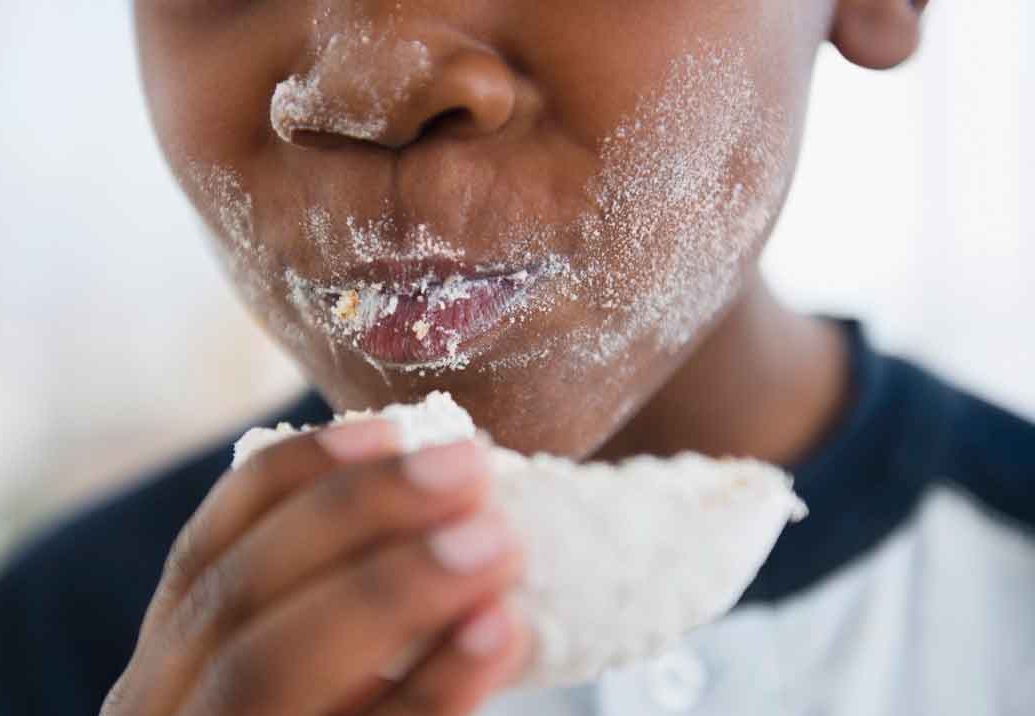Your Child’s Health Will Improve with Less Sugar

Avoiding sugar can quickly reverse chronic metabolic diseases. Here's what you should know about helping your family cut back on sweets and white carbs.
Living with too many extra pounds does more than make children targets for teasing and bullying. It can lead to serious health problems.
Kids with obesity are more likely to have metabolic syndrome, marked by high blood pressure, elevated blood glucose level, excess fat around your waist, and abnormal cholesterol levels. Metabolic syndrome increases the risk of heart disease and stroke as well as non-alcoholic fatty liver disease, type 2 diabetes, and kidney disease, years of research have established.
It’s a growing problem in kids. Centers for Disease Control and Prevention statistics show that, beginning at age six, more than one in five American kids and teens have obesity, a figure that has tripled since the 1970s. As with adults, changing habits may help reduce your family’s risk of obesity, possibly along with bariatric surgery or medication.
YOU MIGHT ALSO LIKE: How to Cut Back on Sugar
If you’re thinking about where to start, a great move is cutting out sugar-sweetened sodas and other foods with added sugar.
There’s good news. Since 2000, kids in the United States are drink less soda.
A simple approach is to:
- Encourage your kids to drink water, which will help make them feel full.
- Keep sweets limited.
- Serve less white bread, rice, and potatoes, which quickly turn to glucose, a form of sugar, in your blood. Cutting back can reverse high triglycerides, a component of metabolic syndrome, along with other benefits.
Eating lots of fiber can slow your child’s digestion and have a good effect on the gut microbiome, which influences immunity and many other body functions. Lowering saturated fat from food like hotdogs or fried nuggets may also make a difference, research suggests, even if your child doesn’t lose weight.
There’s also evidence that dietary changes may help faster than you’d guess. One research team found that nine days of a diet that cut back on fructose — the kind of sugar in fruit juice, honey, table sugar, and corn syrup — created good changes, lowering diastolic blood pressure, LDL cholesterol, and blood sugar, even in youngsters who didn’t lose weight. For those days, the researchers supplied study participants with their food, which included whole fruit and even pizza.
At the Weight Assessment for Teen and Child Health Clinic at UCSF Benioff Children's Hospital, doctors, nutritionists, exercise physiologists, and psychologists target metabolic dysfunction rather than weight loss to improve the health of significantly overweight children.
The 43 study participants, all Latino or African American, groups at higher risk for health problems associated with metabolic syndrome, each had metabolic syndrome as well as one or more other linked conditions, such as hypertension, high triglyceride levels, or a fatty liver.
The researchers gave the volunteers the same amount of calories and carbohydrates they normally ate, but they cut out sugar-loaded cereals, pastries, and sweetened yogurt.
The children didn’t seem to miss the sugary foods and said they felt fuller and less hungry.
Their health also improved. Blood pressure was lower and, on average, triglycerides plummeted by 33 points. Meanwhile, LDL cholesterol (known as the “bad” cholesterol) fell by 10 points. Fasting blood glucose dropped by five points, insulin levels were cut by one-third, and liver function tests improved, too.
“This study demonstrates that ‘a calorie is not a calorie,’” said Robert Lustig, MD, a pediatric endocrinologist at UCSF Benioff Children’s Hospital in San Francisco. “Where those calories come from determines where in the body they go. Sugar calories are the worst because they turn to fat in the liver, driving insulin resistance, and driving risk for diabetes, heart, and liver disease. This has enormous implications for the food industry, chronic disease, and healthcare costs.”
Try to keep your children away from sugar. That may sound impossible, but your kids may be interested in conducting their own natural experiment. After some time without sugar, an ordinary sugary food can taste unpleasantly sweet. Many children enjoy science, if it isn’t presented with too many numbers or unfamiliar terms. The experience of feeling fuller may help, too.
Updated:
January 11, 2024
Reviewed By:
Janet O’Dell, RN